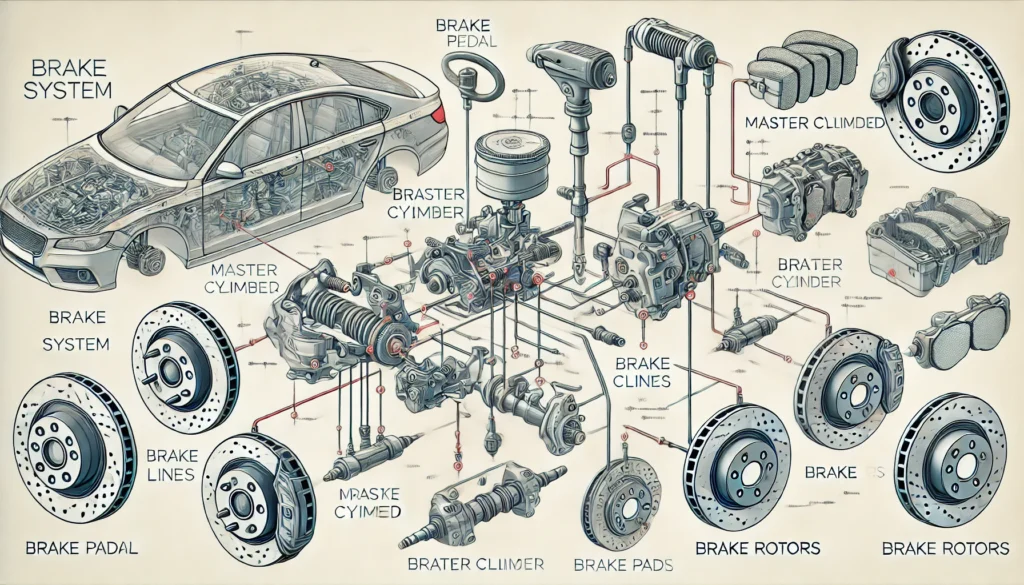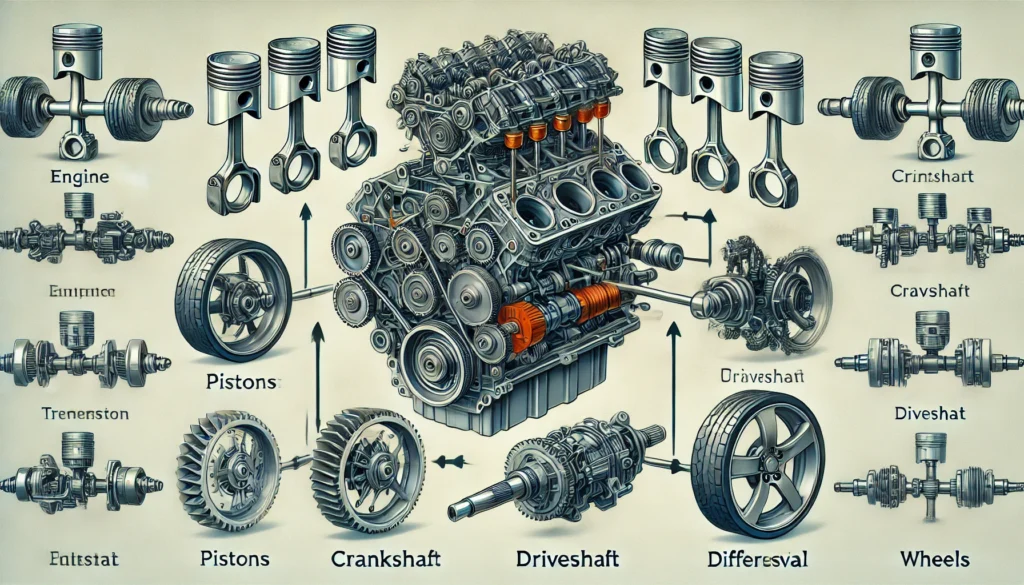The brake system is a crucial component of any vehicle, ensuring safe and effective stopping power. When a brake system fault occurs, indicated by the brake warning light on the dashboard, it raises concerns about vehicle safety and performance. One common question is whether a brake system fault can cause a loss of vehicle torque. Understanding the relationship between brake system faults and vehicle torque is essential for effective vehicle maintenance and troubleshooting.
Understanding the Brake System
The brake system comprises several key components, including the brake pedal, master cylinder, brake lines, calipers, brake pads, and rotors. These parts work together to create the friction necessary to slow down and stop the vehicle effectively.

Understanding Vehicle Torque
Vehicle torque is a measure of the rotational force produced by the engine. It is crucial for acceleration and overall vehicle performance. Torque is transferred from the engine to the wheels through the drivetrain, enabling the vehicle to move forward.

Impact of Brake System Faults on Vehicle Torque
- No Direct Impact on Engine Torque:
- Explanation: The brake system and the engine’s torque generation operate independently. The brake system is designed to manage stopping power, while the engine produces torque to drive the vehicle.
- Scenario: A brake system fault does not directly affect the engine’s ability to produce torque. The engine continues to generate torque regardless of the brake system’s condition.
- Indirect Impact Through Increased Rolling Resistance:
- Explanation: Certain brake system faults, such as sticking brake calipers or improperly adjusted brakes, can cause increased rolling resistance. This means the brakes do not fully release, creating drag that the engine must overcome.
- Impact: Increased rolling resistance requires the engine to work harder, which can feel like a loss of torque as the vehicle struggles to accelerate or maintain speed.
- Brake Drag and Reduced Performance:
- Explanation: Brake drag occurs when the brake pads do not fully retract after the brake pedal is released, causing continuous friction against the rotors.
- Impact: This continuous friction can reduce overall vehicle performance, making it feel like the engine is producing less torque as it battles against the braking force.
Diagnosing and Addressing Brake System Faults
- Check Brake Pads and Rotors:
- Steps: Inspect the brake pads and rotors for signs of wear or damage. Replace any components that are worn out or damaged.
- Importance: Ensuring that the brake pads and rotors are in good condition helps prevent brake drag and maintains optimal braking performance.
- Inspect Brake Calipers:
- Steps: Check the brake calipers for signs of sticking or seizing. Clean, lubricate, or replace faulty calipers as necessary.
- Importance: Properly functioning calipers ensure that the brakes fully release after use, preventing increased rolling resistance.

- Bleed the Brake Lines:
- Steps: Bleed the brake lines to remove any air bubbles that may have entered the system. This ensures consistent brake pressure and performance.
- Importance: Air in the brake lines can cause inconsistent braking and reduce the effectiveness of the brake system.
- Regular Maintenance:
- Steps: Schedule regular maintenance checks with a professional mechanic to inspect the brake system and address any potential issues before they become serious problems.
- Importance: Regular maintenance helps maintain the overall health of the brake system and prevents faults that could impact vehicle performance.
Conclusion
While a brake system fault does not directly cause a loss of engine torque, it can indirectly affect vehicle performance by increasing rolling resistance and causing brake drag. Ensuring that the brake system is well-maintained and free from faults is crucial for maintaining optimal vehicle performance and safety. Regular inspections, timely repairs, and professional maintenance are essential to prevent brake system issues and ensure your vehicle operates efficiently.